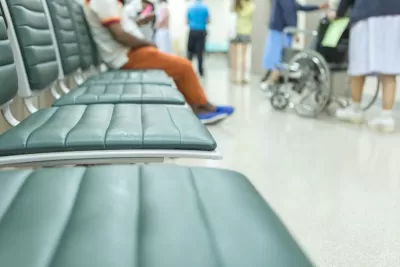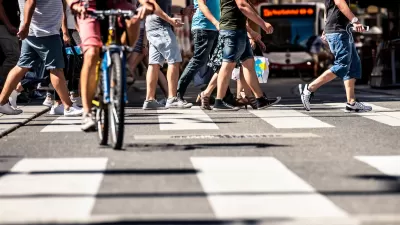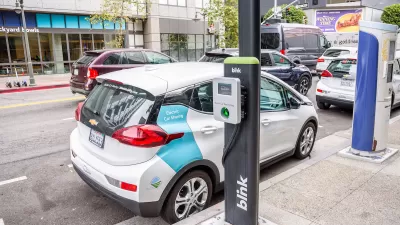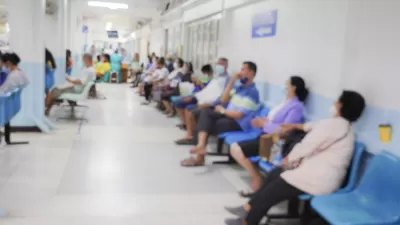Millions of Americans miss medical care and other important day-to-day appointments due to a lack of access to reliable transportation.

Almost 6 percent of Americans were unable to reach medical appointments or other important activities due to a lack of reliable transportation in the last 12 months, reveals new research from the Centers for Disease Control and Prevention’s National Center for Health Statistics.
Steven Ross Johnson outlines the results in U.S. News & World Report, noting that “Overall, the data indicates between 13 million and 14 million adults in the U.S. had recently faced the issue in 2022, according to a CDC spokesperson.” Among people living below the federal poverty line, the rate increased to 16 percent.
Lack of access to transportation can impact people’s health over the short and long term. James Hardy of the Robert Wood Johnson Foundation, told U.S. News & World Report, “At its core, lack of reliable transportation creates a barrier for folks to get to the basic needs and services that families require in order to be healthy.”
For Hardy, this stems in part from the car-centric development that dominates most U.S. communities, limiting mobility for people who don’t own cars or can’t drive. Hardy notes that “narrowing health disparities tied to a lack of transportation will only come with more substantive changes to how government officials plan and invest in transportation.”
FULL STORY: Millions of Americans Lack Reliable Transportation. It May Affect Their Health.

Alabama: Trump Terminates Settlements for Black Communities Harmed By Raw Sewage
Trump deemed the landmark civil rights agreement “illegal DEI and environmental justice policy.”

Planetizen Federal Action Tracker
A weekly monitor of how Trump’s orders and actions are impacting planners and planning in America.

The 120 Year Old Tiny Home Villages That Sheltered San Francisco’s Earthquake Refugees
More than a century ago, San Francisco mobilized to house thousands of residents displaced by the 1906 earthquake. Could their strategy offer a model for the present?

Opinion: California’s SB 79 Would Improve Housing Affordability and Transit Access
A proposed bill would legalize transit-oriented development statewide.

Record Temperatures Prompt Push for Environmental Justice Bills
Nevada legislators are proposing laws that would mandate heat mitigation measures to protect residents from the impacts of extreme heat.

Downtown Pittsburgh Set to Gain 1,300 New Housing Units
Pittsburgh’s office buildings, many of which date back to the early 20th century, are prime candidates for conversion to housing.
Urban Design for Planners 1: Software Tools
This six-course series explores essential urban design concepts using open source software and equips planners with the tools they need to participate fully in the urban design process.
Planning for Universal Design
Learn the tools for implementing Universal Design in planning regulations.
Clanton & Associates, Inc.
Jessamine County Fiscal Court
Institute for Housing and Urban Development Studies (IHS)
City of Grandview
Harvard GSD Executive Education
Toledo-Lucas County Plan Commissions
Salt Lake City
NYU Wagner Graduate School of Public Service





























